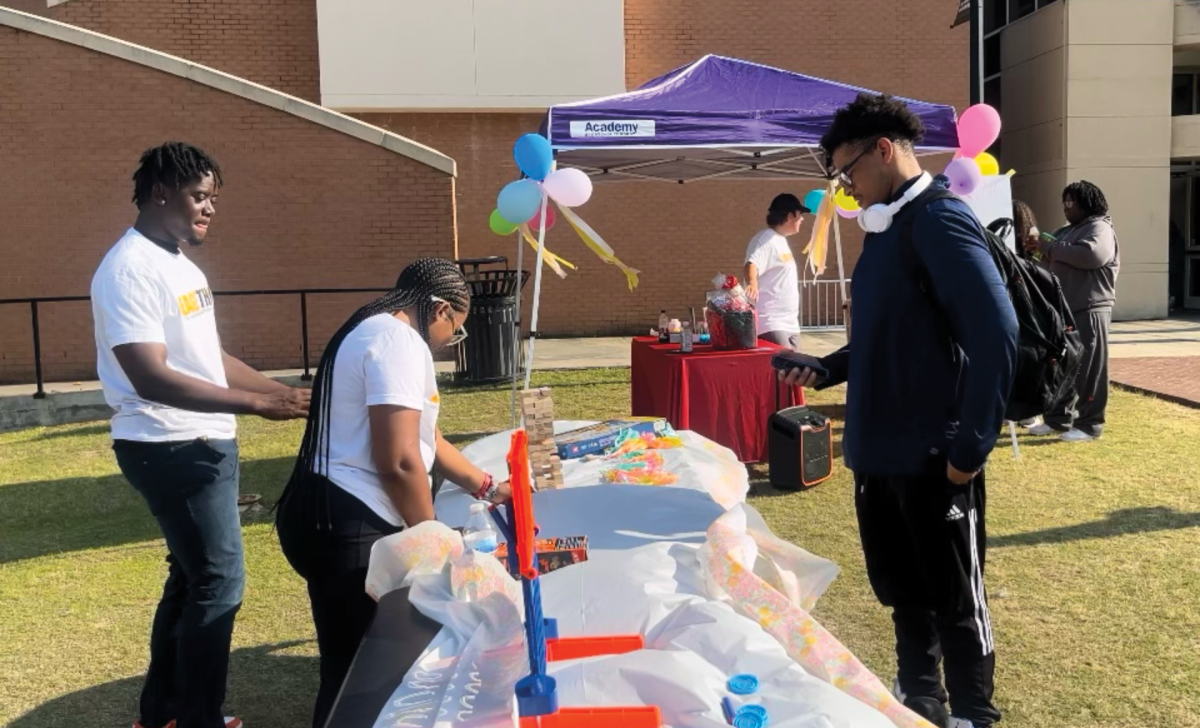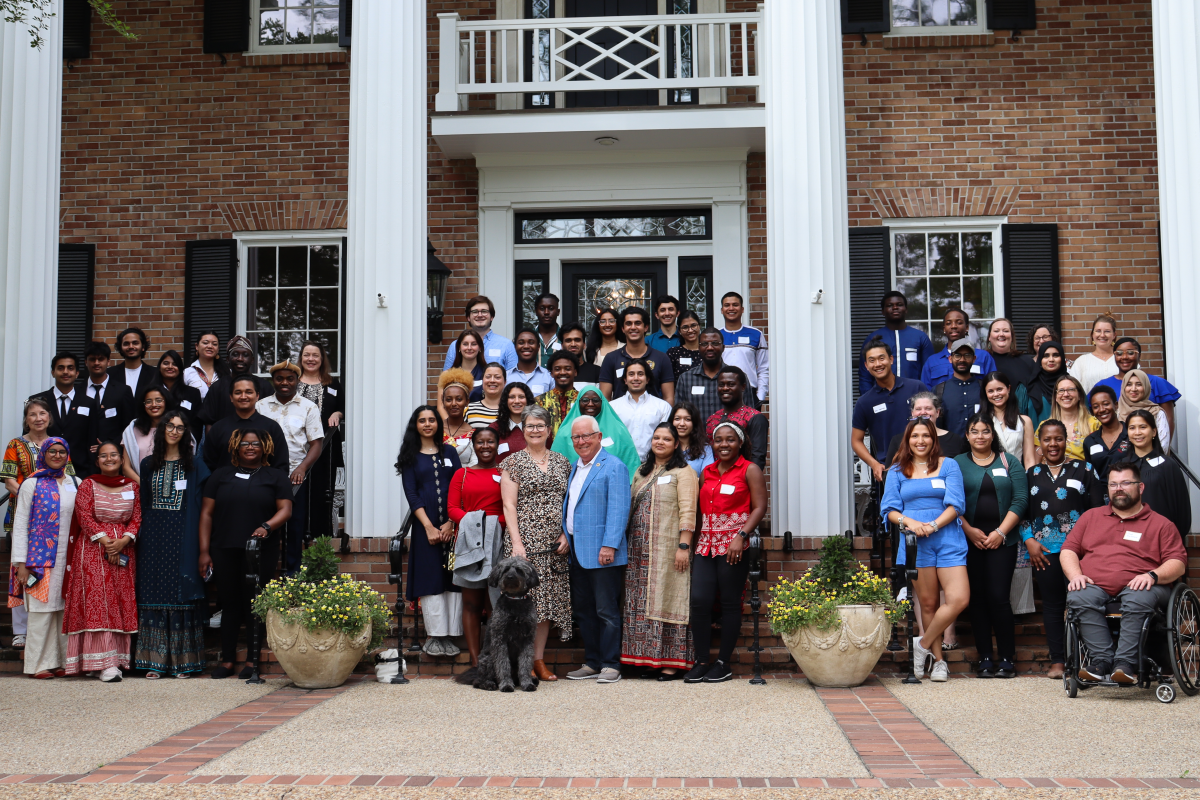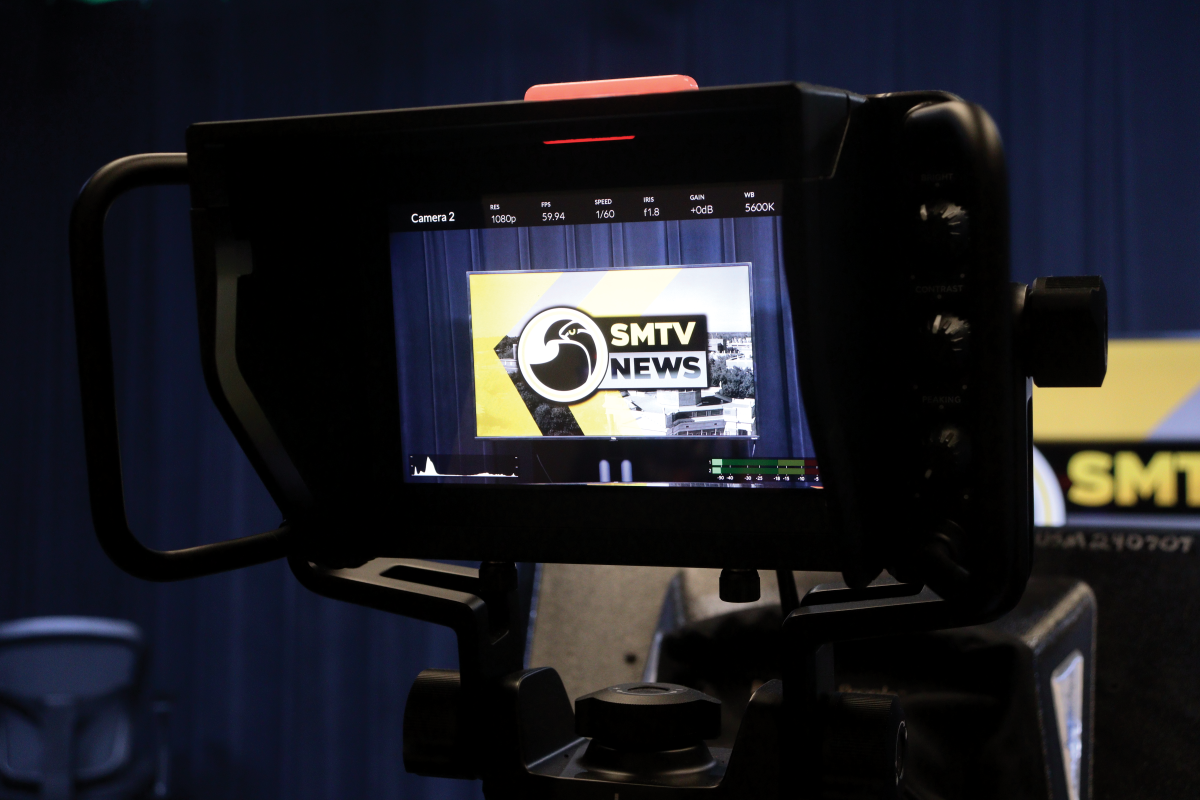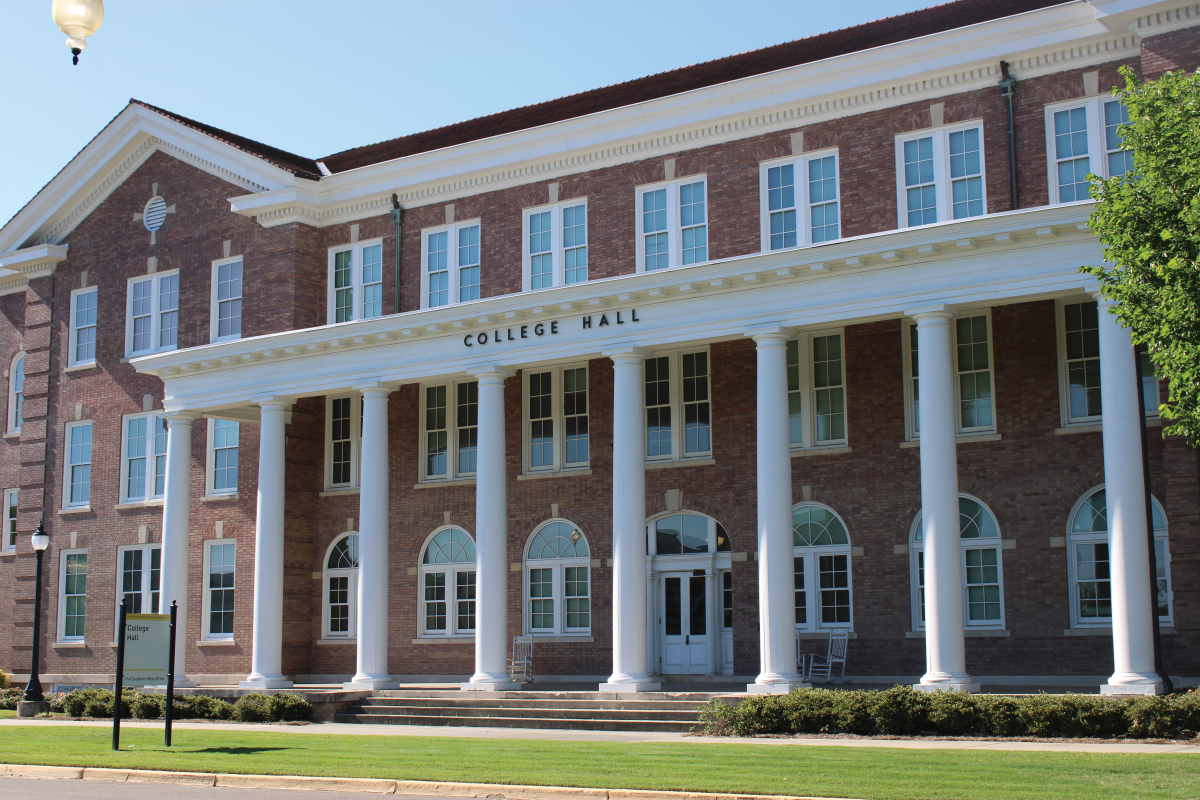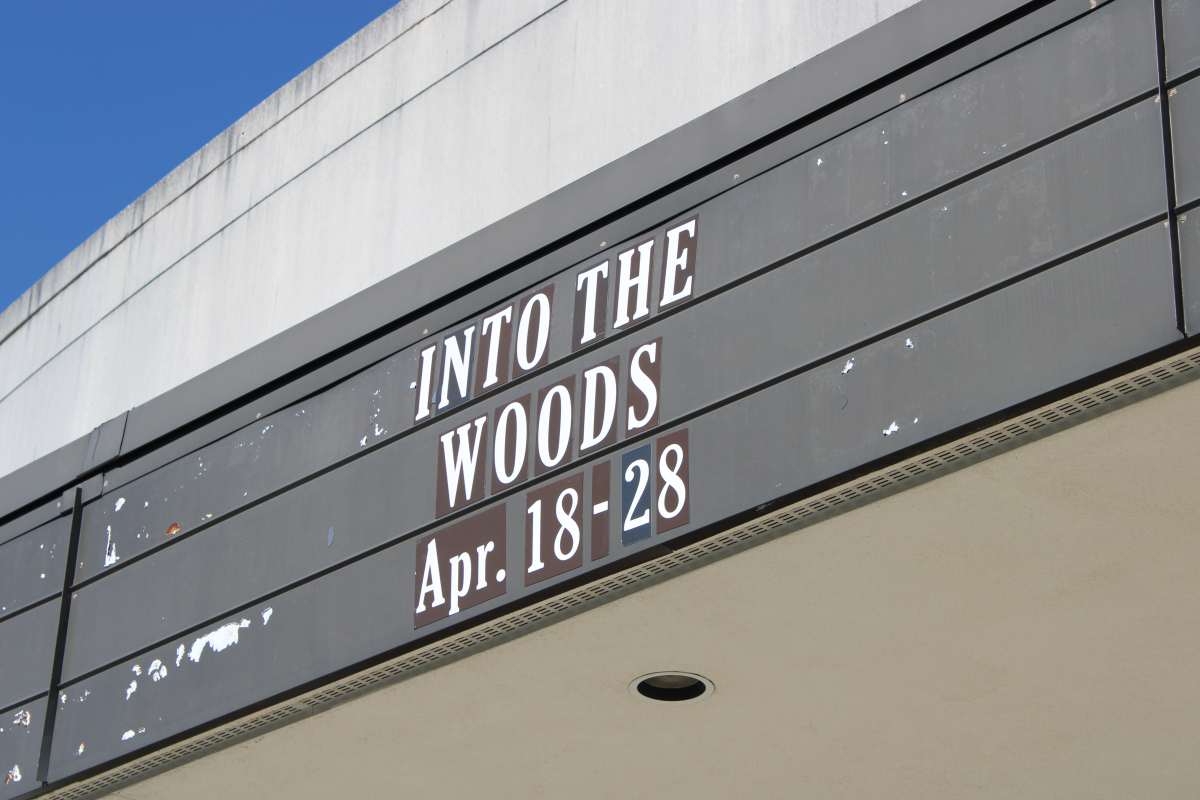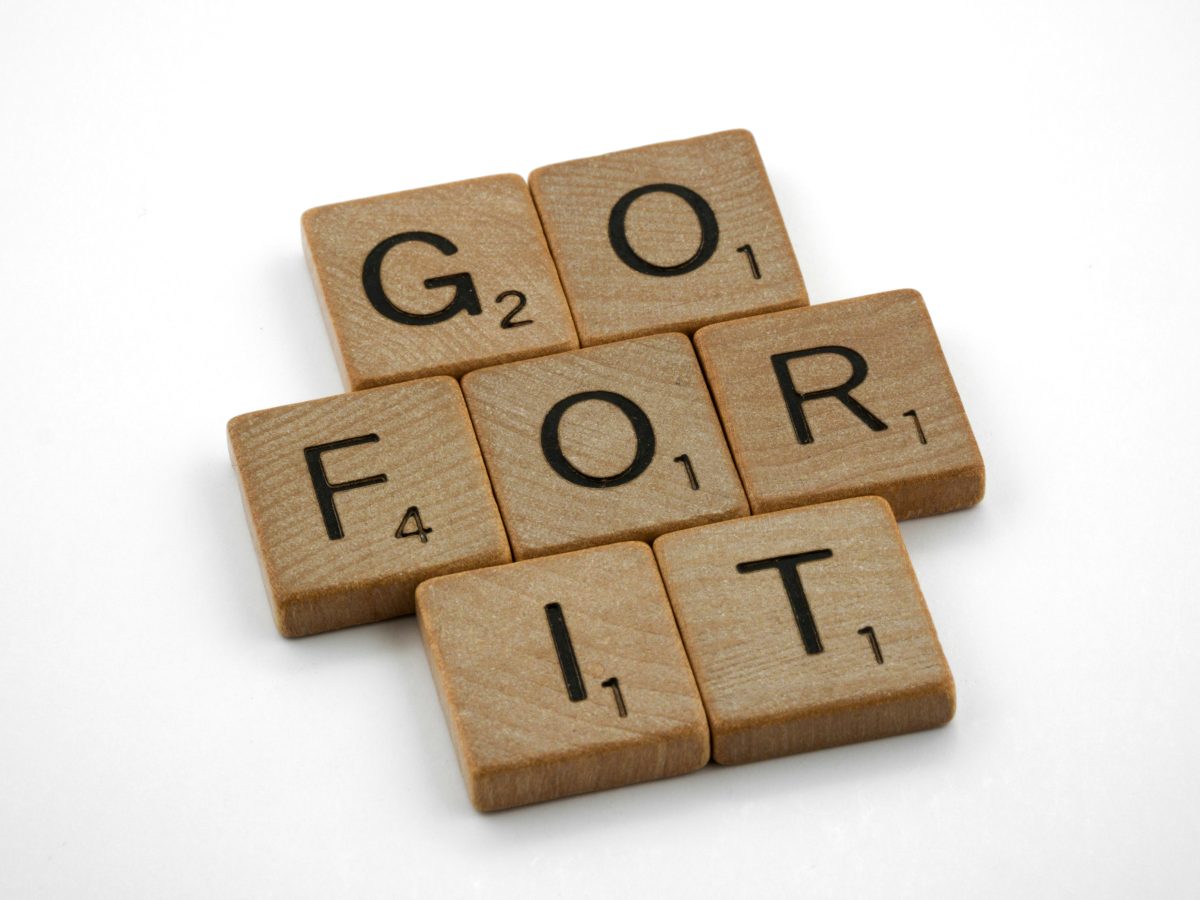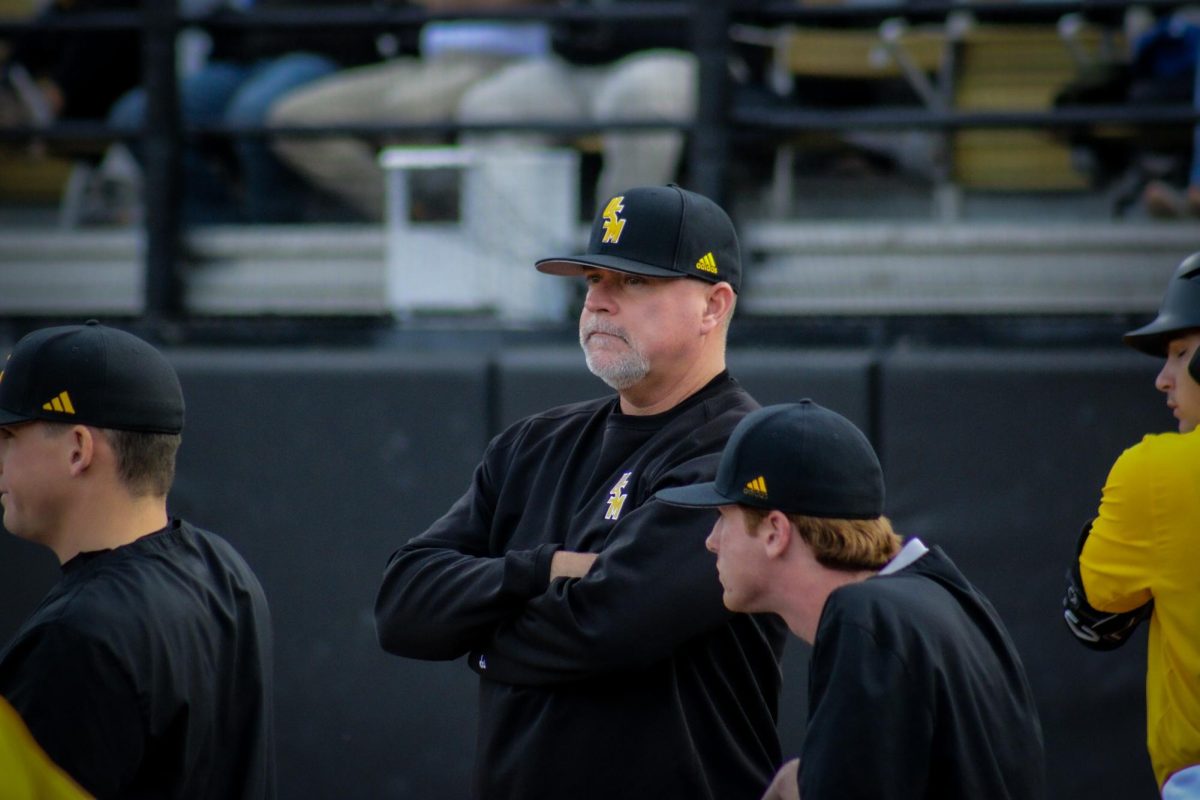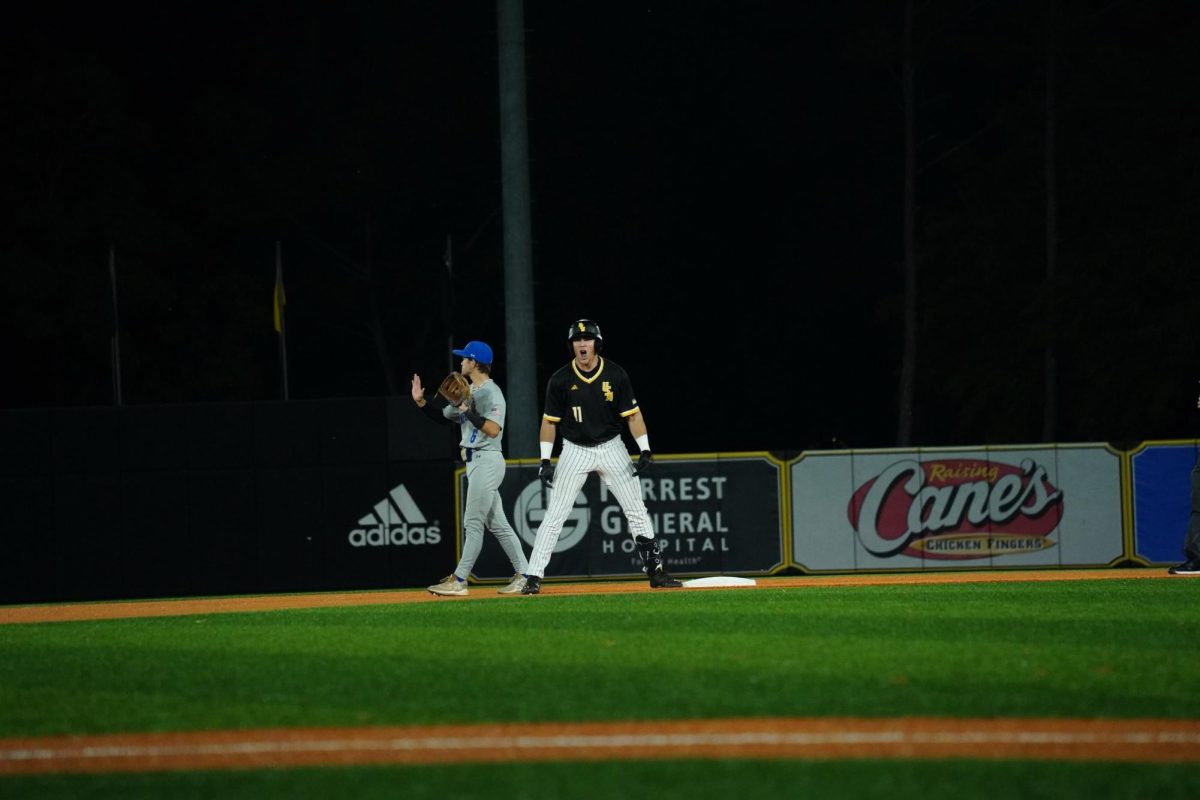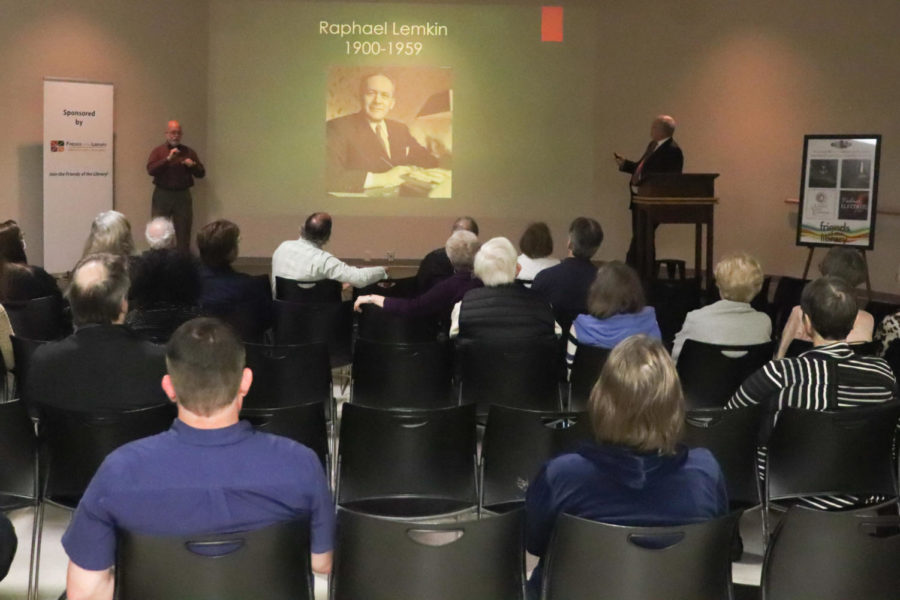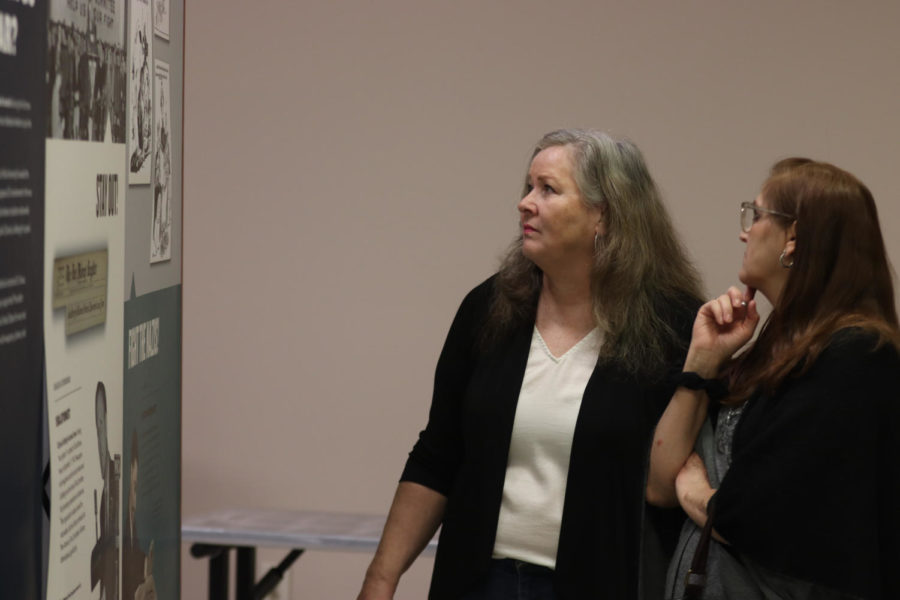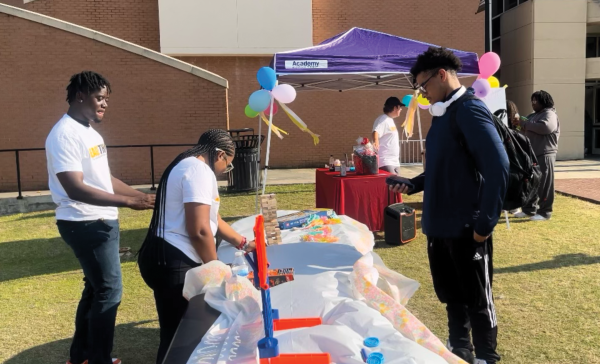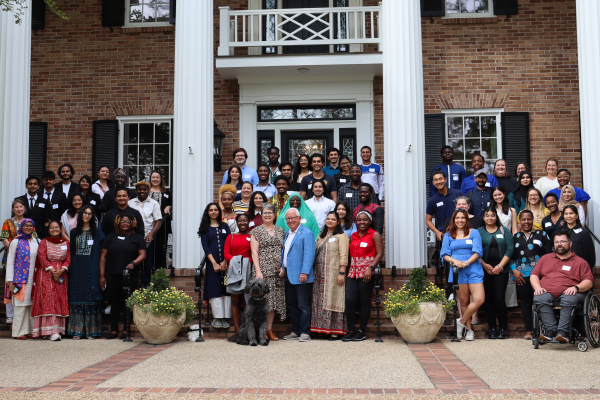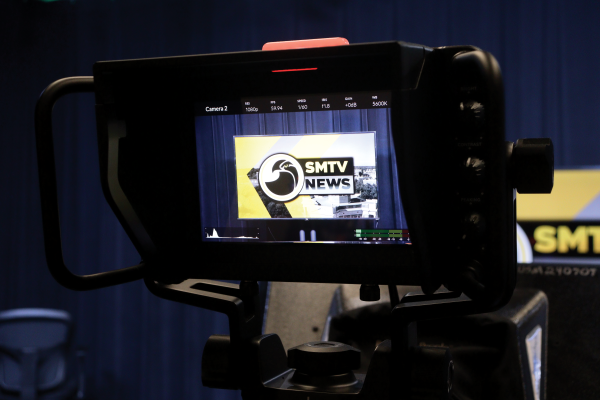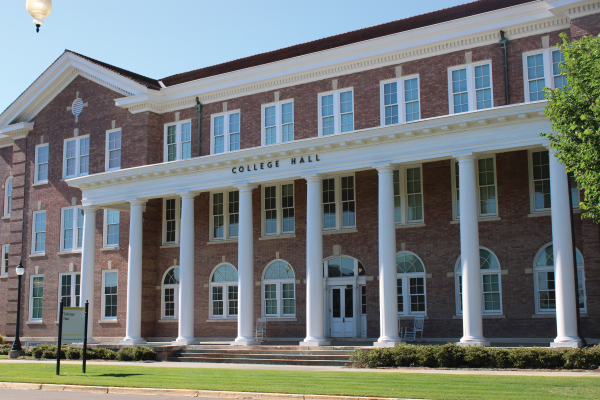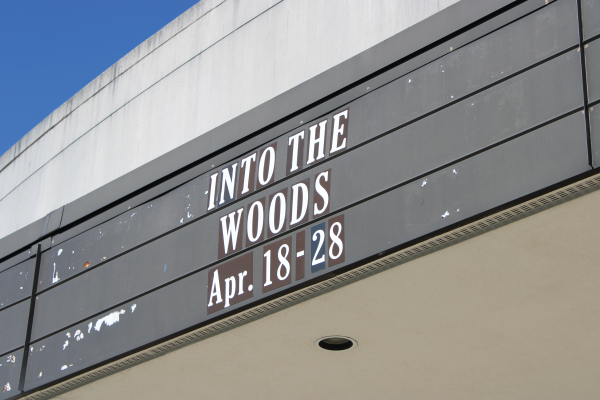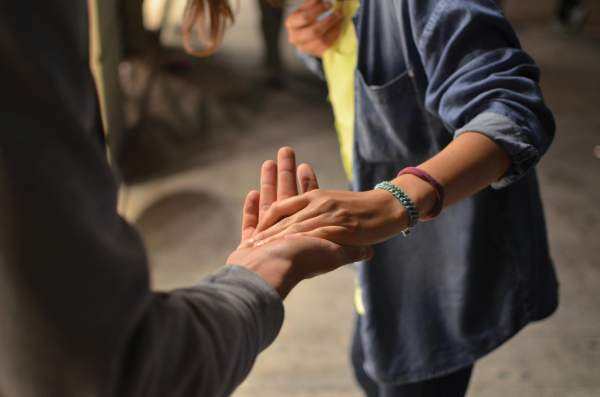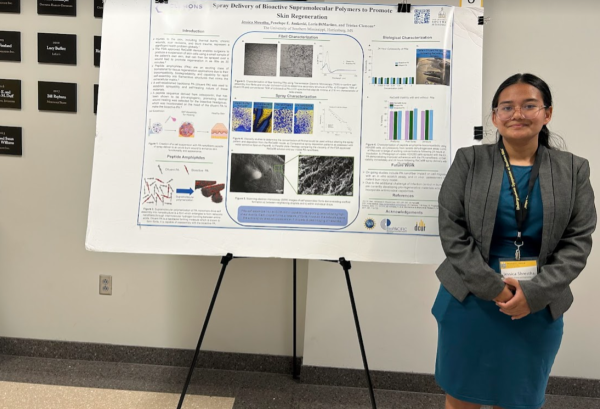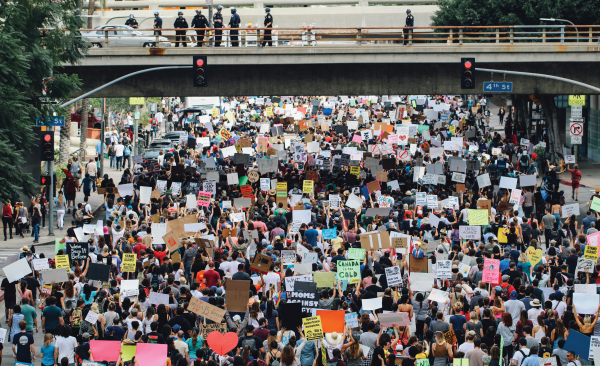Exhibit examines America’s cold response to Holocaust
Dr. Donald Berry speaks to visitors of the Hattiesburg Lirbrary in conjunction with an exhibit titled “Americans and The Holocaust” on Janurary 20, 2023.
America’s dispassionate response to the Holocaust is the theme of a traveling exhibition from the U.S. Holocaust Memorial Museum called “Americans and the Holocaust,” now being hosted at the Library of Hattiesburg, Petal, and Forrest County’s Hattiesburg branch until February 10.
The exhibit examines the motives, pressures and fears that shaped the American people’s responses to Nazism, war and genocide in Europe during the 1930s and 10940s. The exhibit also showcases how even when America finally joined the fight, saving those targeted and murdered by the Nazi regime and its collaborators never became a priority.
“They didn’t voice their opinion. They didn’t stand up for it,” said Robin Guthrie, a recent visitor to the exhibit. “They knew about it, but then they didn’t do anything about it,”
This exhibit shows that while the American people knew what was happening in Europe, they decided to do nothing or raise a voice to try to get the government to help with the war effort in the beginning. It was not until Pearl Harbor that the American people and the government decided to help put a stop to World War II.
“If women, children and old people would be murdered a hundred miles from here, wouldn’t you run to help?” Dr. Donald Berry quoted from a speech by Rafael Limkin. “Then why do you stop this decision of your heart when the decision is 3,000 miles, the distance is 3,000 miles instead of a hundred?”
This was the case for the Holocaust, and the exhibit highlights that. Throughout the exhibition, visitors can read how the American people viewed what was happening overseas and see their reactions in diagrams on several display boards. The graphs show the percentage of people who disapproved of what was happening in Europe but did not want to allow refugees into America.
Berry gave a lecture on January 19 about examining genocide through the lens of the Holocaust. He explained how the word genocide was coined during the war by Rafael Limkin, who pursued a law like the one on piracy that could be enforced internationally.
“But no one country can say you committed genocide,” Berry said. “Therefore, we’re going to punish you for it. It takes a collaboration of countries to recognize genocide and give teeth to the law.”
A treaty was established that would ban genocide. However, a law would not be ratified until after Limkin’s death, thanks to Senator William Proxmire, who ensured that Limkin’s work was preserved in the Congressional record.
While we need to remember the Holocaust and how Americans could have helped more, we must also remember the lives lost during this devastating event.
“The best way we can probably remember the pain and suffering of the individuals trapped in events like the Holocaust is to remember them personally,” Berry said.
Many Americans feared retaliation then, and even now, that fear is still present in citizens’ actions regarding standing up for injustice.
“It’s just the fear of retaliation. But, if you do stand up for things that are going on that are wrong, if you stand up against it, I guess that fear of standing up, making that stand, you know,” Guthrie said. “But what could ordinary people do? You know, what could they do? Like today, people fear polls because what will the government do? Are they going to retaliate? Make it hard for you because you believe or open your mouth against a particular thing. But, if we see injustice against God’s teachings, we should stand up for what we know is right. No matter who it hurts.”
The Library of Hattiesburg, Petal, and Forrest County, located at 329 Hardy Street, was one of 50 locations selected to host the exhibit, which opened in April 2018 at the U.S. Holocaust Memorial Museum in Washington, D. C. The exhibit is free and open to the public during their regular hours Monday – Thursday, from 8 a.m. – 7 p.m., and Friday and Saturday, 8:30 a.m. – 5 p.m.
Your donation will support the student journalists of University of Southern Mississipi. Your contribution will allow us to purchase equipment and cover our annual website hosting costs.


